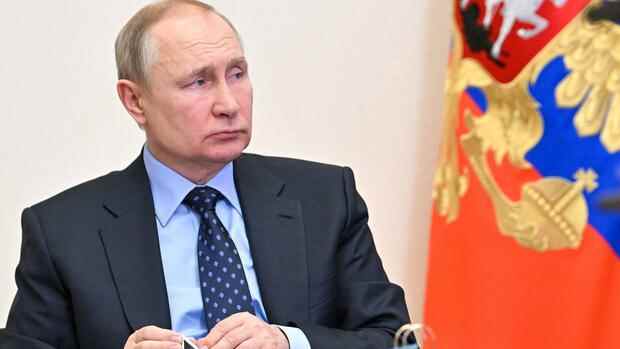Even allied countries are no longer reliable business partners for Moscow.
(Photo: imago images/ITAR-TASS)
In his government statement, Chancellor Olaf Scholz predicted with regard to the Western sanctions: “The war will also prove to be a catastrophe for Russia.” The prediction has become reality. The question that was recently discussed as to whether the sanctions would significantly harm Russia has been answered.
Never before has a country been cut off from the global economy on such a scale and at such a pace.
What began as sanctions by Western states has now become a private-sector boycott movement. The EU, UK and US have come forward with banning Russian financial institutions from Swift and banning foreign exchange for the central bank.
The ruble has plummeted, the stock exchange in Moscow does not dare to open. Russia is reacting to this with capital controls and restrictions that make doing business in the country an almost incalculable risk for foreign companies.
Top jobs of the day
Find the best jobs now and
be notified by email.
This applies to exports to the country, where suppliers cannot be sure that they will get their money. But it also applies to production in Russia itself.
Energy companies are also turning their backs on Russia
And so one group after another is withdrawing from Russia, from Apple to Boeing to Volkswagen. Not only are companies cutting off supplies, they are shutting down plants and divesting stakes in subsidiaries. This also applies to sectors that are not subject to any direct restrictions.
Although the West has not yet sanctioned the oil and gas business, energy companies such as BP, Exxon and Shell are also turning their backs on Russia.
Russia is economically decoupled.
(Photo: Burkhard Mohr)
For Western companies, this is also a question of reputation. Politicians were already feeling the immense pressure from the public when the impression was created that America and Europe were refraining from harsh reactions because of their own economic interests. Now the chain reaction is running in the corporations. The more companies withdraw, the greater the pressure on those who remain.
Even if the departure from Russia is associated with high write-downs, that is no longer a concern. The risks of staying are now much greater. Who wants to do business with a state that cannot be trusted but is capable of anything?
This is how the Handelsblatt reports on the Ukraine war:
Even allied countries are no longer reliable business partners for Moscow. Their banks are now also holding back in view of the Russian financial and currency crisis.
The same can be observed on the oil market, where Russia is unable to find any buyers despite enormous price reductions. It is questionable whether Moscow will continue to supply gas to Europe for much longer. As images of Putin’s bloody war in Ukraine deteriorate, public pressure mounts on European governments to sever that link as well.
As correct as the sanctions are and as good as it is that the aggressor Putin is also feeling the pressure in his own country, they have now taken on such a dynamic of their own in the private sector that they can only be controlled to a limited extent. And that also entails risks:
- First, economic decoupling will no longer be so easy to undo, even if you wanted to at some point.
- Second, complete isolation and the associated economic decline are driving Putin into such a corner that he may not have anything left to lose. That could make him even more dangerous.
More: Russia sanctions – Habeck wants to support affected companies with loans
